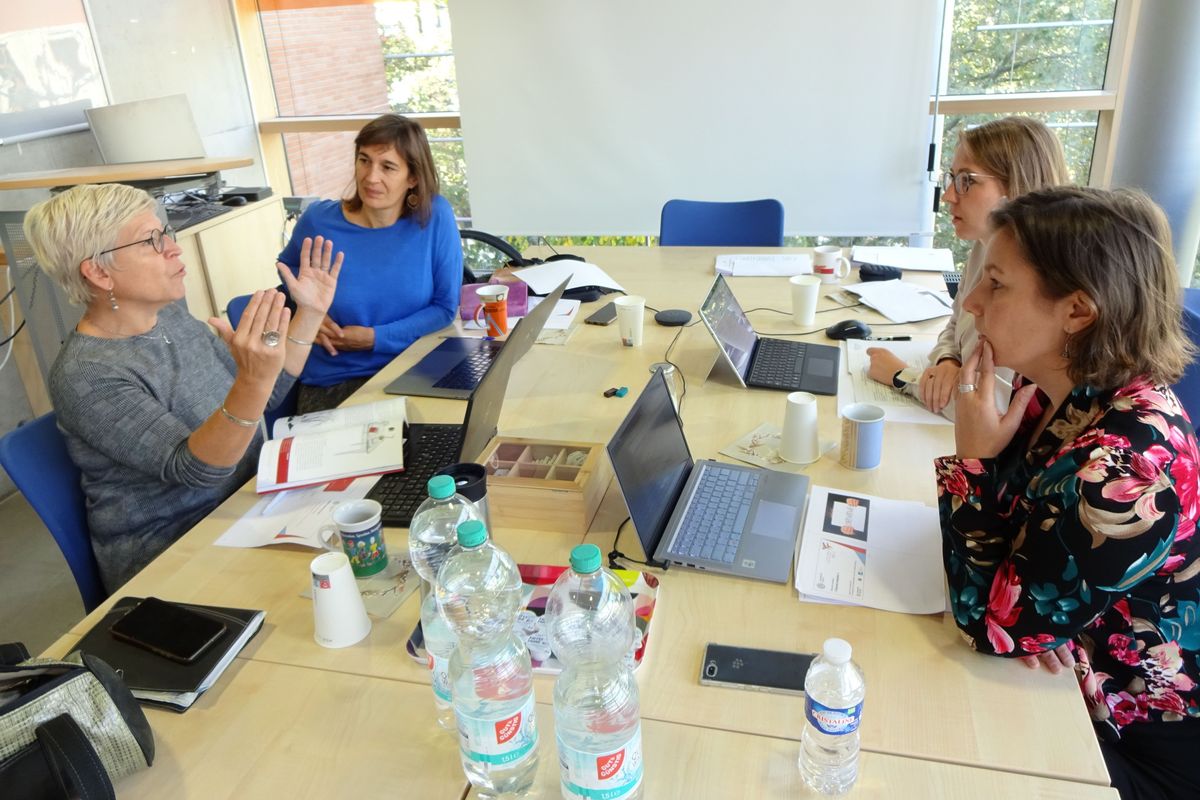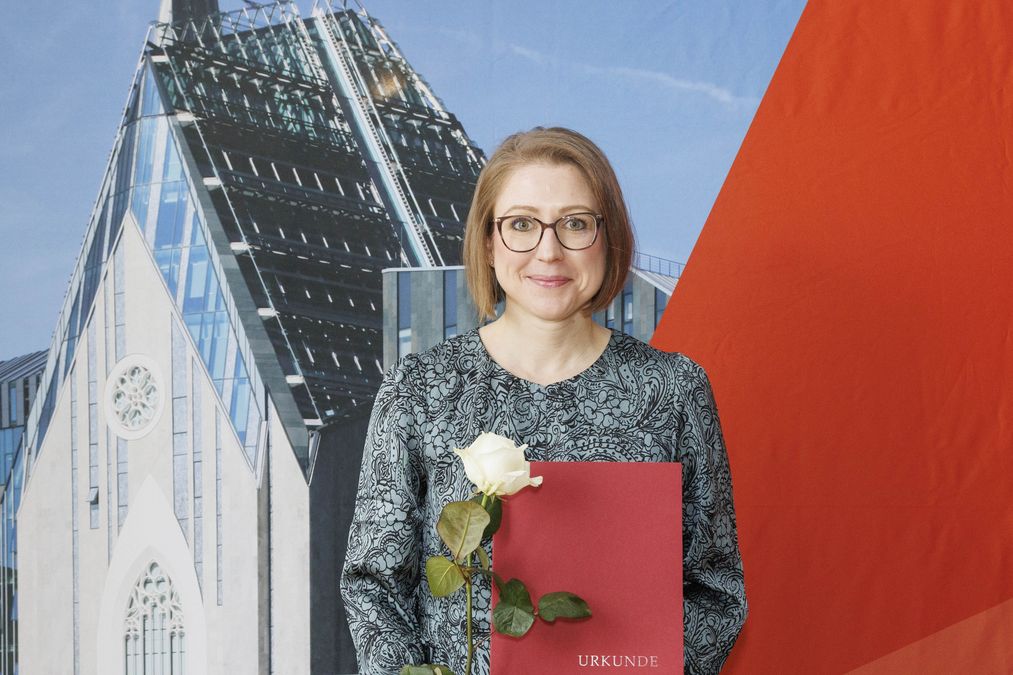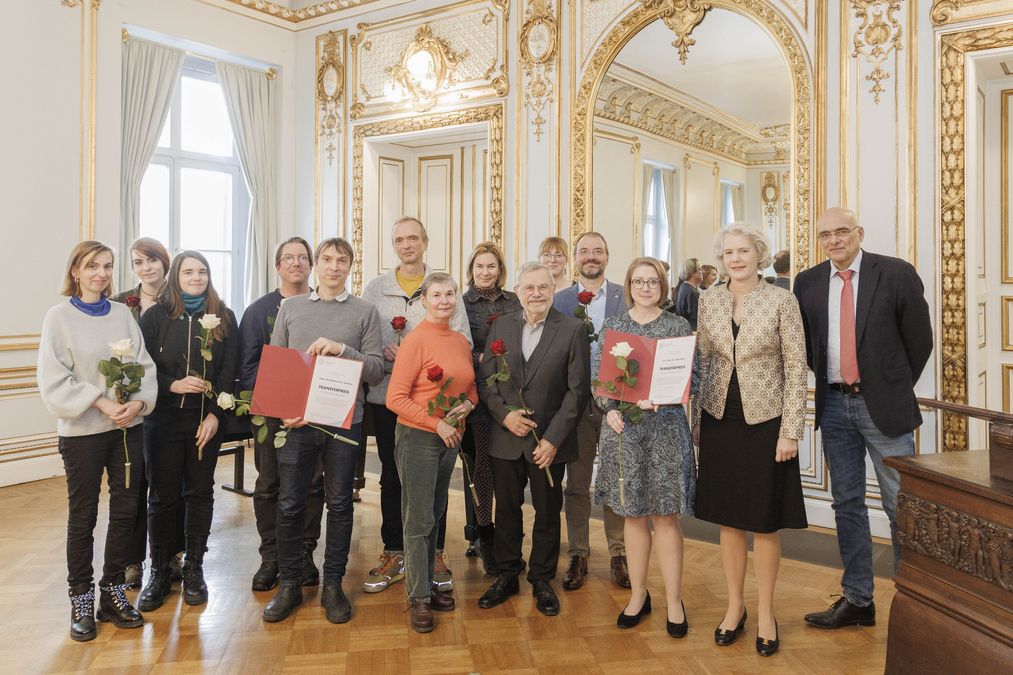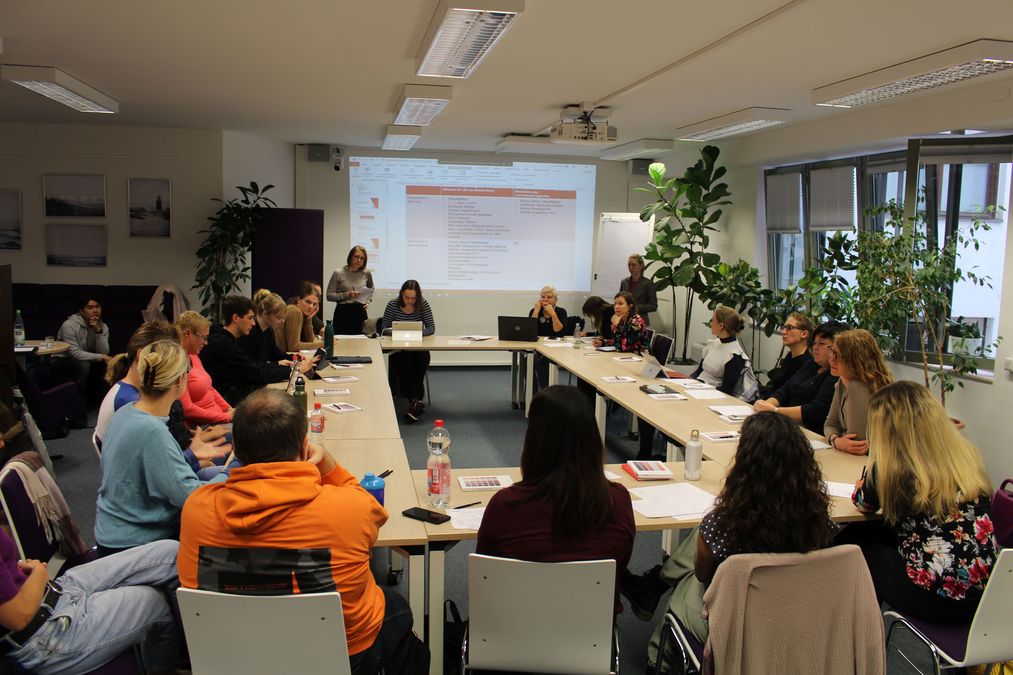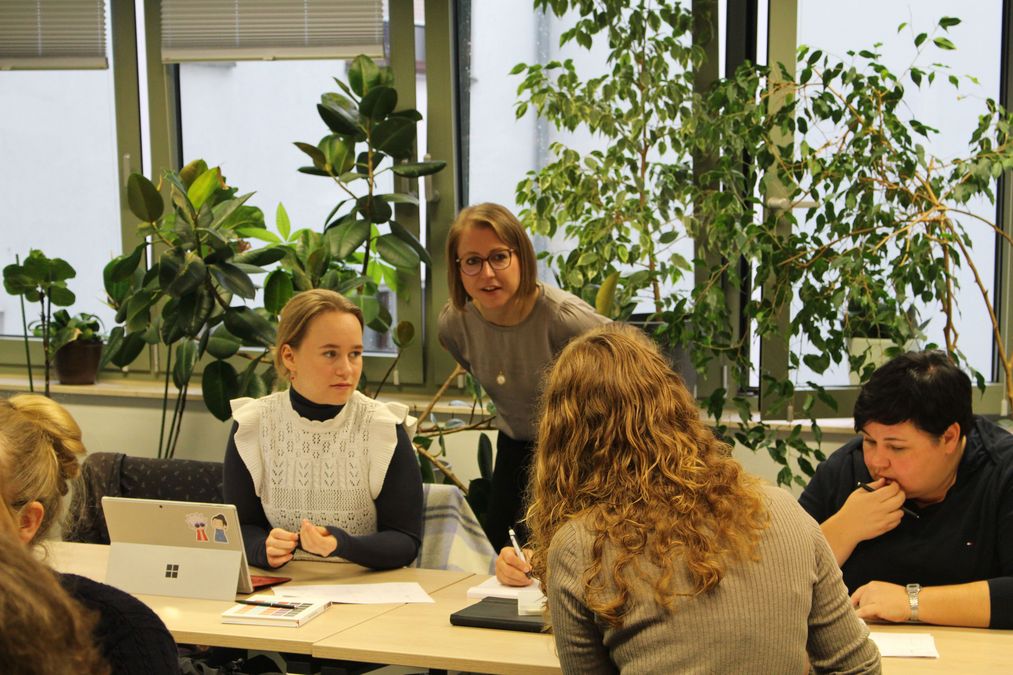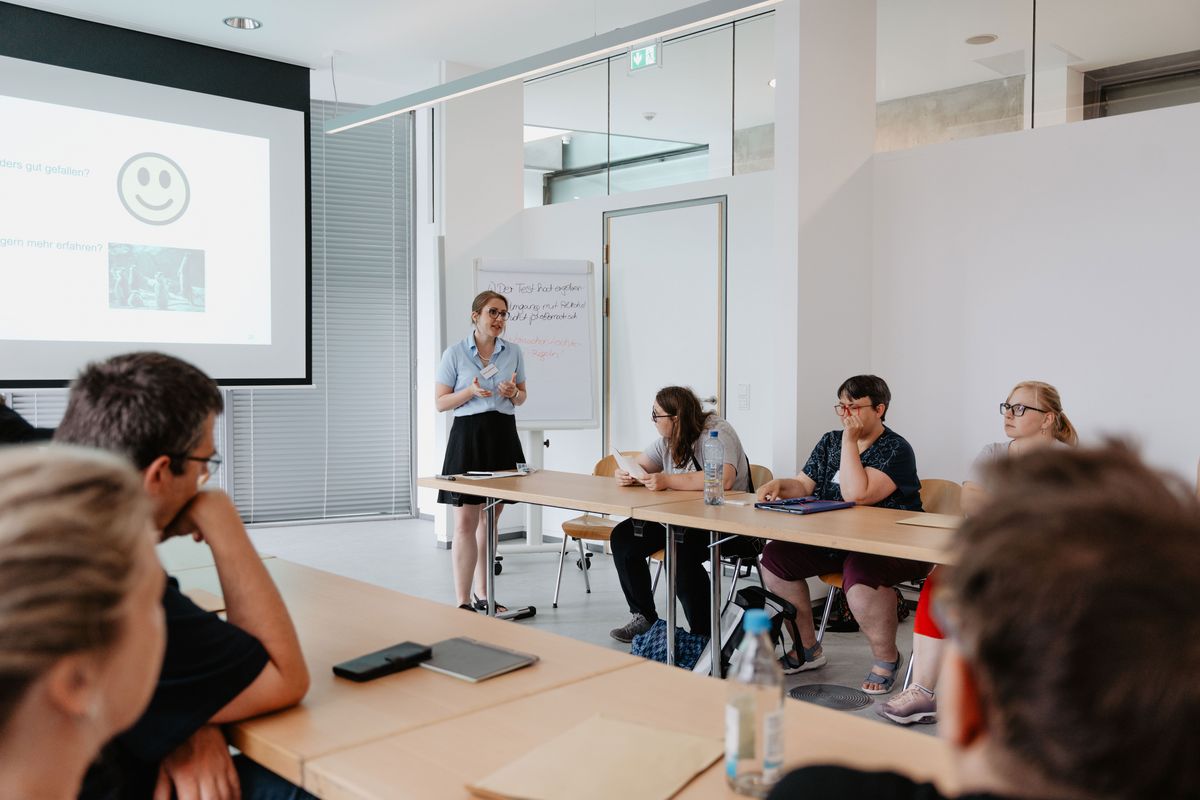German Linguistics - Pragmatics
Team
Research
Transfer
We transfer our knowledge from research and teaching to society.
As part of the project „From Science to Society: Student podcasts about linguistics” and the seminar „Destructive Linguistic Communication: Hate Speech” (Summer Term 2023), a popular science podcast on hate speech from a linguistic perspective has been created in cooperation with radio mephisto 97.6.
Article on the project in the Uni-Magazin
Podcast on Spotify
In the context of the call for proposals „Élysée-Vertrag – Zusammen den Blick in die Zukunft richten”, the Franco-German University (FGU) funded the project „Let's keep it simple! Participatory workshops on Easy Language in France (Lille) and Germany (Leipzig)”. Together with professors Emmanuelle Canut and Juliette Delahaie from the Université de Lille and Magali Husianycia from the Association AsFoRel in Nancy, Julia Fuchs organised participatory transfer workshops in Leipzig (9 October 2023) and in Lille (20 October 2023) for professionals from the field.
At the conference on communication organised by the „Werkstätten für behinderte Menschen Sachsen” on 20.06.2023, Julia Fuchs gave a workshop on Easy Language for target groups of this form of barrier-free communication.



